
Ganja: The Jewel of Azerbaijan
Ganja, Azerbaijan's second-largest city, is a hidden gem waiting to be discovered. With its rich history, vibrant culture, and stunning architecture, Ganja offers a unique blend of the old and the new. As you roam its streets, you'll find a city that has seamlessly blended its Soviet past with modern aspirations, making it an intriguing destination for any traveler. The heart of Ganja is filled with historical landmarks, such as the Nizami Mausoleum, dedicated to the 12th-century Persian poet Nizami Ganjavi. This beautiful structure is adorned with intricate mosaics and offers a peaceful retreat from the bustling city. Nearby, the Javad Khan Street is a lively area where you can experience local life, sample traditional Azerbaijani cuisine, and shop for unique souvenirs. Nature lovers will find solace in the scenic parks and gardens that dot the city. Heydar Aliyev Park, one of the largest in Azerbaijan, is perfect for a leisurely stroll or a family picnic. The Ganja Botanical Garden, with its diverse plant species and serene atmosphere, is another must-visit. For those who enjoy outdoor activities, the nearby Goygol Lake provides breathtaking views and opportunities for hiking, fishing, and boating. Ganja's cultural scene is equally impressive, with museums, theaters, and galleries showcasing the city's artistic heritage. The Ganja State Philharmonic Hall hosts regular concerts, while the Ganja History Museum offers insights into the city's past. Whether you're a history buff, a nature enthusiast, or simply looking for a new adventure, Ganja has something to offer everyone.
Local tips in Ganja
- Visit Nizami Mausoleum early in the morning to avoid crowds.
- Try the local dish 'Dushbara' at a traditional Azerbaijani restaurant.
- Spend an afternoon at Heydar Aliyev Park for a relaxing escape.
- Hire a local guide to learn more about Ganja's historical sites.
- Check the weather before planning a trip to Goygol Lake.
Ganja: The Jewel of Azerbaijan
Ganja, Azerbaijan's second-largest city, is a hidden gem waiting to be discovered. With its rich history, vibrant culture, and stunning architecture, Ganja offers a unique blend of the old and the new. As you roam its streets, you'll find a city that has seamlessly blended its Soviet past with modern aspirations, making it an intriguing destination for any traveler. The heart of Ganja is filled with historical landmarks, such as the Nizami Mausoleum, dedicated to the 12th-century Persian poet Nizami Ganjavi. This beautiful structure is adorned with intricate mosaics and offers a peaceful retreat from the bustling city. Nearby, the Javad Khan Street is a lively area where you can experience local life, sample traditional Azerbaijani cuisine, and shop for unique souvenirs. Nature lovers will find solace in the scenic parks and gardens that dot the city. Heydar Aliyev Park, one of the largest in Azerbaijan, is perfect for a leisurely stroll or a family picnic. The Ganja Botanical Garden, with its diverse plant species and serene atmosphere, is another must-visit. For those who enjoy outdoor activities, the nearby Goygol Lake provides breathtaking views and opportunities for hiking, fishing, and boating. Ganja's cultural scene is equally impressive, with museums, theaters, and galleries showcasing the city's artistic heritage. The Ganja State Philharmonic Hall hosts regular concerts, while the Ganja History Museum offers insights into the city's past. Whether you're a history buff, a nature enthusiast, or simply looking for a new adventure, Ganja has something to offer everyone.
When is the best time to go to Ganja?
Iconic landmarks you can’t miss
Xan Bağı
Discover Xan Bağı in Ganja: A historic garden offering a peaceful retreat with lush greenery and ornamental fountains.
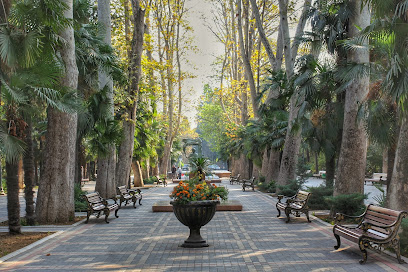
Heydər Əliyev Parkı
Discover Ganja's largest park: a blend of nature, culture, and entertainment at Heydar Aliyev Park, a must-visit destination in Azerbaijan.
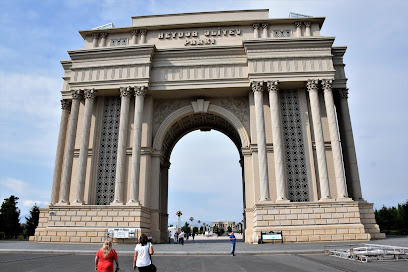
Nizami Ganjavi Mausoleum
A serene monument honoring the 12th-century Persian poet Nizami Ganjavi, a cultural icon of Azerbaijan, located near Ganja.
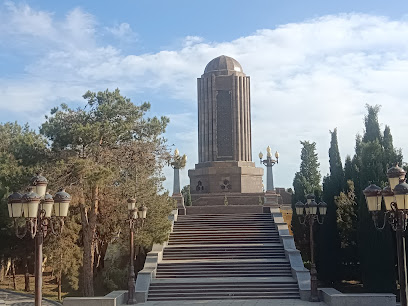
Ganja International Airport
Discover Azerbaijan's cultural heartland via Ganja International Airport, your gateway to Ganja's rich history and hospitality.
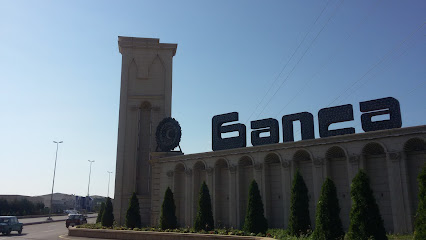
Bottle House
Discover the Bottle House in Ganja, Azerbaijan: A unique architectural marvel built with 48,000 glass bottles, a testament to creativity and remembrance.
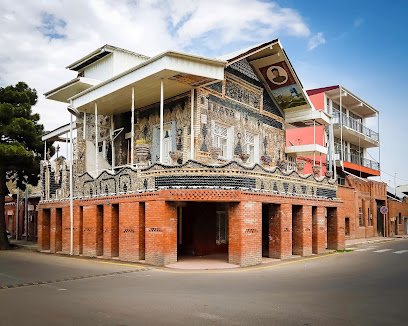
Ganja Castle Doors - Museum of Archaeology and Ethnography
Discover the echoes of empires at Ganja Castle Doors, a gateway to Azerbaijan's past, revealing centuries of Silk Road history and cultural fusion.
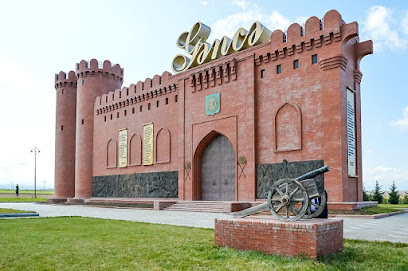
İmamzadeh İbrahim
Discover İmamzadeh İbrahim in Ganja: a serene mosque with stunning Islamic architecture, rich history, and spiritual significance.
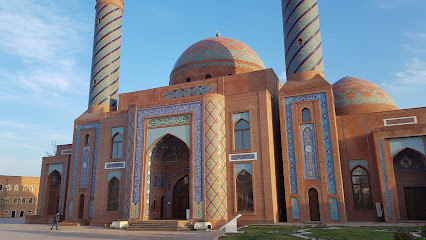
Gəncə Qalası
Explore the remnants of Ganja Fortress, a 16th-century defensive structure and a window into the city's vibrant past.
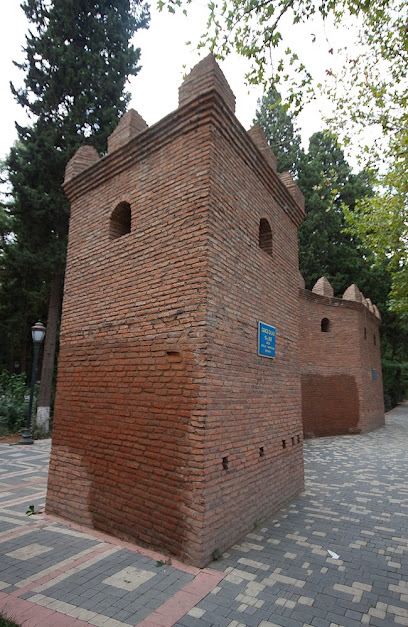
Flag Square
A symbol of national pride in Azerbaijan's second city, Flag Square offers a serene and reflective space for visitors and locals alike.
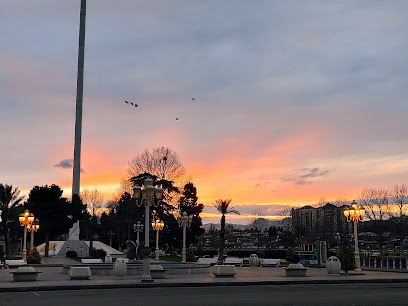
Azerbaijan State Agrarian University (Main Corpus/ Bash Bina)
Explore Azerbaijan's agricultural heritage at Ganja's State Agrarian University, a historic institution dedicated to education and innovation.
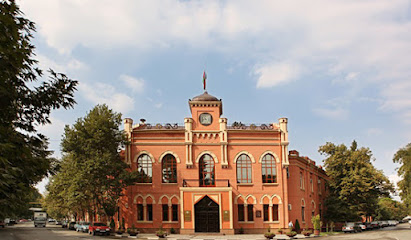
Javad Khan Mausoleum
Honor a national hero at the Javad Khan Mausoleum in Ganja, a symbol of Azerbaijani resilience and architectural beauty.
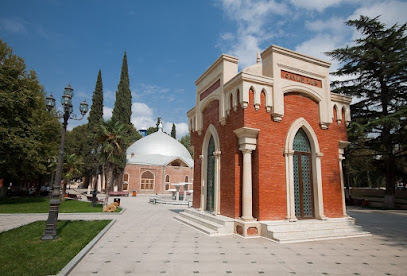
Ganja State History and Ethnography Museum
Explore Azerbaijan's second-largest city through ancient artifacts, ethnographic displays, and historical insights at Ganja's premier museum.
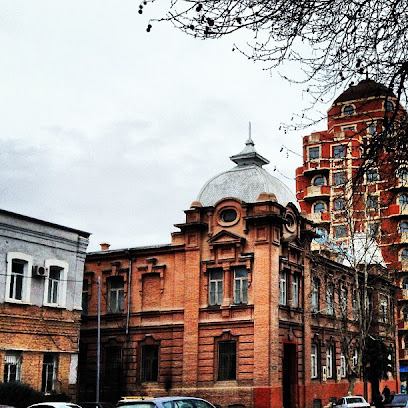
Chokak Hamam
Discover the historical Chokak Hamam in Ganja, a 17th-century architectural treasure offering a glimpse into Azerbaijan's rich bathing traditions.
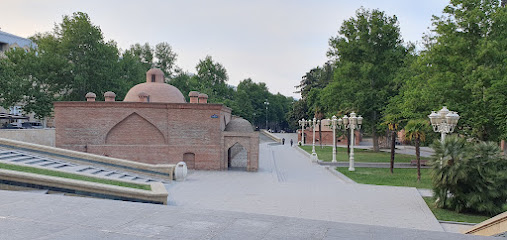
Nizami Ganjavi Museum
Explore the life and legacy of Nizami Ganjavi, Azerbaijan's celebrated poet, at this dedicated museum in Ganja.
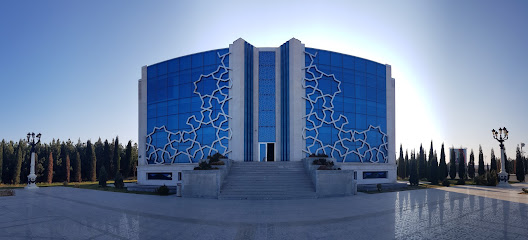
Unmissable attractions to see
Heydər Əliyev Parkı
Explore the Caucasus' largest park in Ganja, Azerbaijan, offering nature, recreation, and culture with its iconic arch and serene lake.
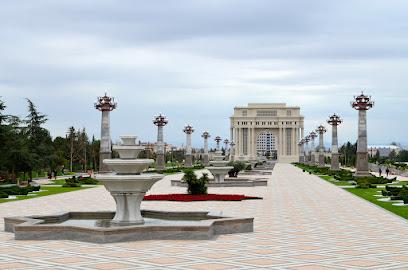
Nizami Ganjavi Mausoleum
Pay tribute to the legendary Persian poet Nizami Ganjavi at this iconic mausoleum in Ganja, Azerbaijan. A cultural and historical landmark.
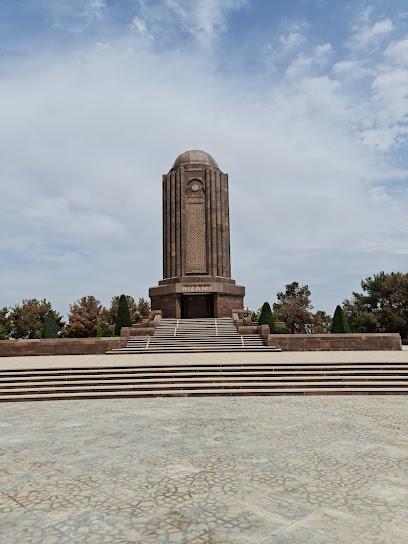
Heydər Əliyev Parkı
Discover Ganja's largest park: a blend of nature, culture, and recreation awaits at Heydar Aliyev Park, the Caucasus' green jewel.
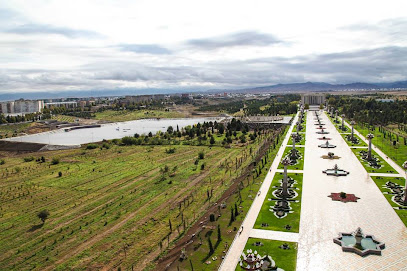
Bottle House
Discover Ganja's Bottle House: A dazzling architectural marvel crafted from 48,000 recycled bottles, a testament to creativity and remembrance.
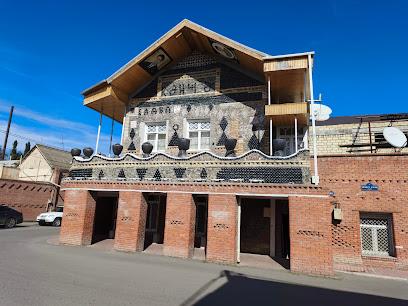
Heyder Eliyev Parki Yeni Ganja
Explore the Caucasus' largest park in Ganja, Azerbaijan, with stunning architecture, tranquil gardens, and diverse entertainment for all ages.
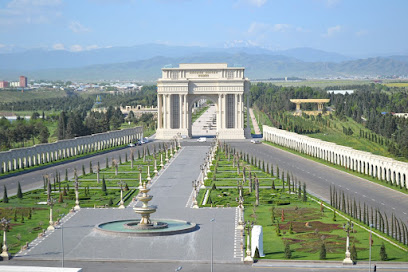
Flag Square
A landmark in Ganja symbolizing Azerbaijani pride, Flag Square is a modern venue for national celebrations and cultural events.
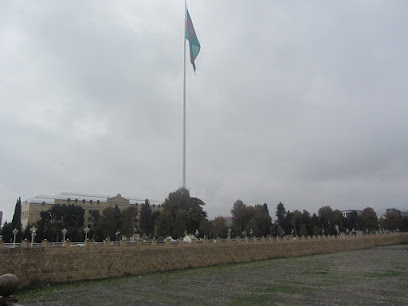
Ganja State History and Ethnography Museum
Explore Azerbaijan's past at Ganja's largest museum, featuring over 30,000 exhibits from ancient times to today.
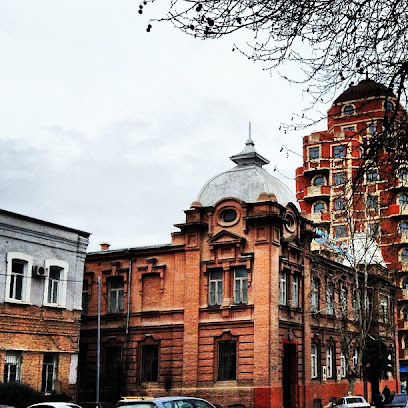
Nizami Ganjavi Museum
Explore the life and works of the legendary poet Nizami Ganjavi at this cultural landmark in Ganja, Azerbaijan.
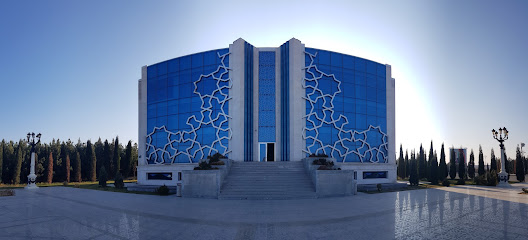
Essential places to dine
Mohito Restoran
Experience authentic Azerbaijani flavors at Mohito Restoran in Ganja – a must-visit for food lovers seeking delicious local cuisine.
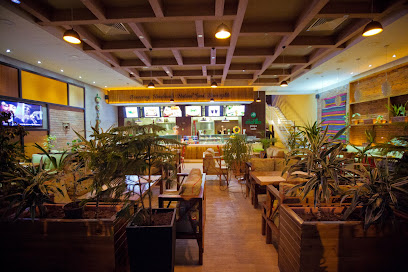
Zirzemi Restaurant
Experience authentic Azerbaijani flavors at Zirzemi Restaurant in Ganja – where tradition meets taste.
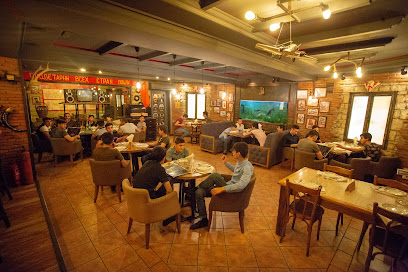
Aşxana Muzey Restoran
Experience authentic Azerbaijani cuisine at Aşxana Muzey Restoran in Ganja - where tradition meets family-friendly dining.
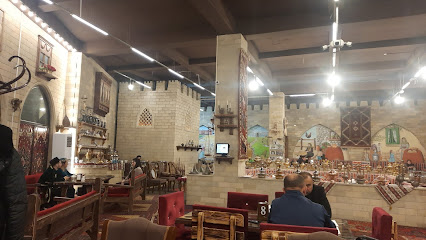
Milli Süfrə
Discover authentic Azerbaijani flavors at Milli Süfrə in Ganja - where every meal tells a story.
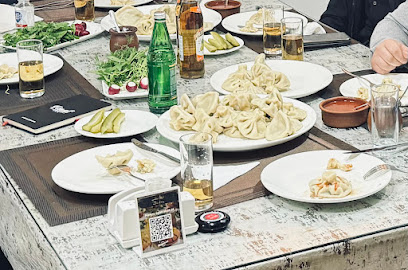
Furor Restaurant and Pub
Experience the vibrant flavors of Azerbaijan at Furor Restaurant and Pub in Ganja – where every meal is a celebration.
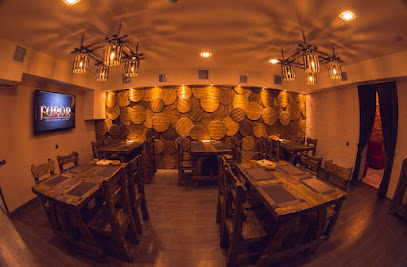
Kapadokya Restoran
Experience authentic Azerbaijani cuisine at Kapadokya Restoran in Ganja - a culinary gem blending tradition with warmth.
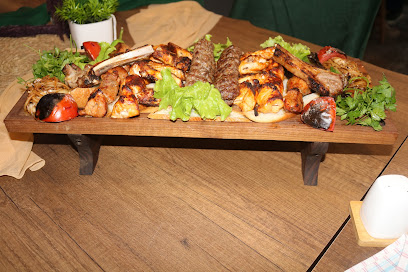
Chinar Restaurant
Experience authentic Azerbaijani cuisine at Chinar Restaurant in Ganja – where tradition meets taste.
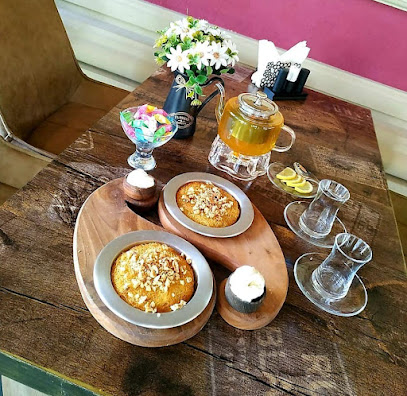
ZÜQO
Experience authentic Azerbaijani cuisine at ZÜQO in Ganja - where every meal tells a story.
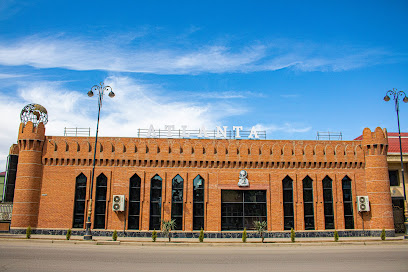
EDEN Restaurant
Experience exquisite Azerbaijani cuisine at EDEN Restaurant in Ganja - a culinary delight for every traveler.
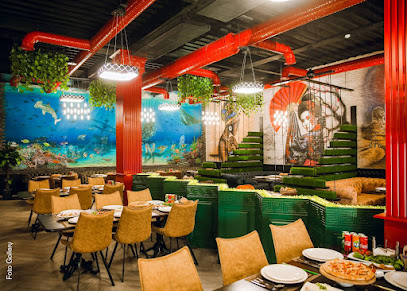
Cafe de Paris Gence
Experience exquisite dining at Café de Paris Gence in Ganja - where local flavors meet international cuisine in an inviting atmosphere.
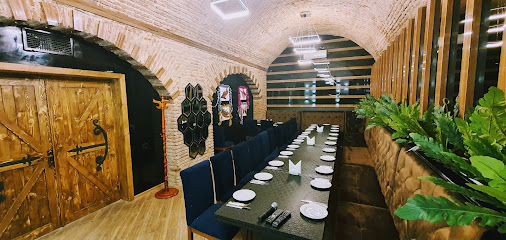
Qafqaz Restoran
Experience authentic Azerbaijani cuisine at Qafqaz Restoran in Ganja - where tradition meets flavor in every dish.
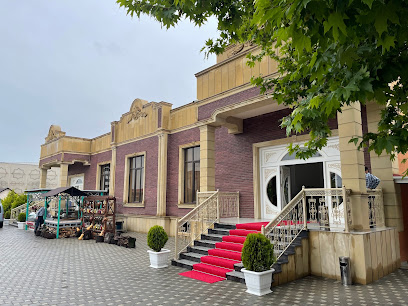
Bağdad restaurant
Discover the flavors of Azerbaijan at Bağdad Restaurant in Ganja - where tradition meets modern culinary artistry.
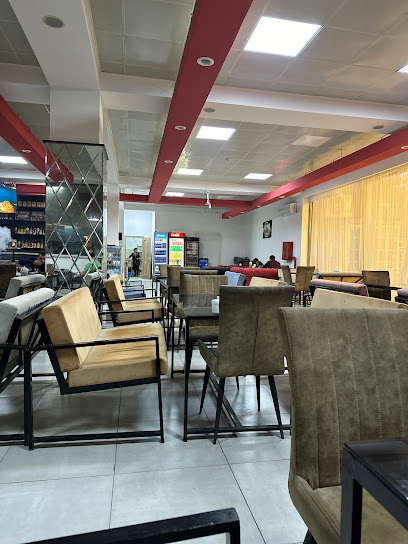
Kristal
Experience the flavors of Azerbaijan at Kristal - where culinary excellence meets warm hospitality in Ganja.
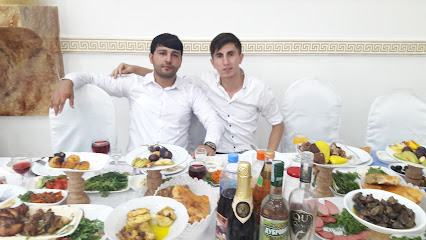
Zefir Cafe Restaurant
Discover the flavors of Azerbaijan at Zefir Cafe Restaurant in Ganja - where delicious cuisine meets exceptional hospitality.
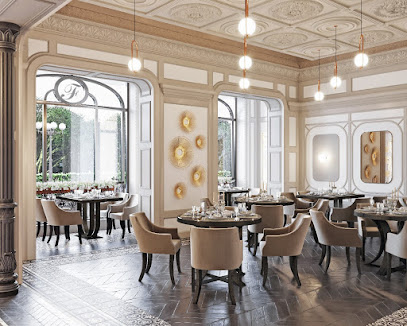
Magara Restoran
Experience the essence of Azerbaijani flavors at Magara Restoran in Ganja – where every dish tells a story.
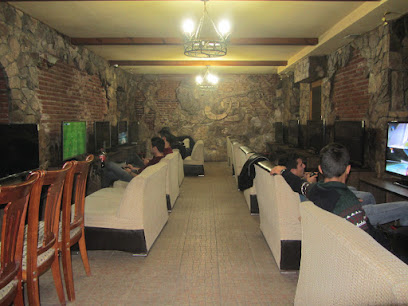
Markets, malls and hidden boutiques
Gəncə Mall
Explore Gəncə Mall in Ganja for a diverse shopping experience with local and international brands, dining delights, and family-friendly entertainment.
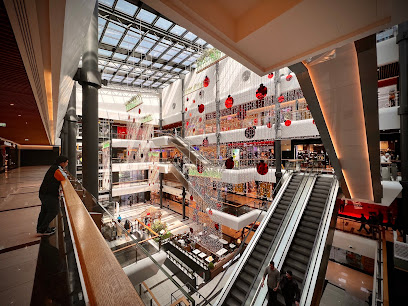
Ganja Shopping Mall
Discover an exciting blend of shopping, dining, and entertainment at Ganja Shopping Mall, a must-visit destination in Ganja, Azerbaijan.
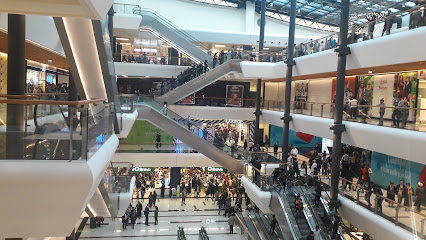
Gold Əminə marketlər şəbəkəsi
Experience the local flavors and vibrant atmosphere at Ganja's Gold Əminə supermarket, your go-to destination for authentic Azerbaijani goods.
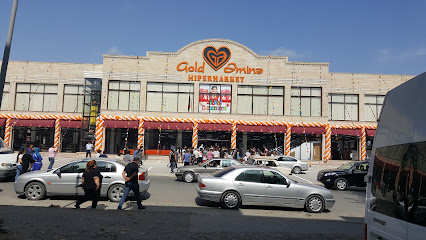
Hədiyyə Antik Aləmi Gəncə
Discover the charm of Azerbaijani culture at Hədiyyə Antik Aləmi Gəncə, your go-to destination for unique antiques and gifts.
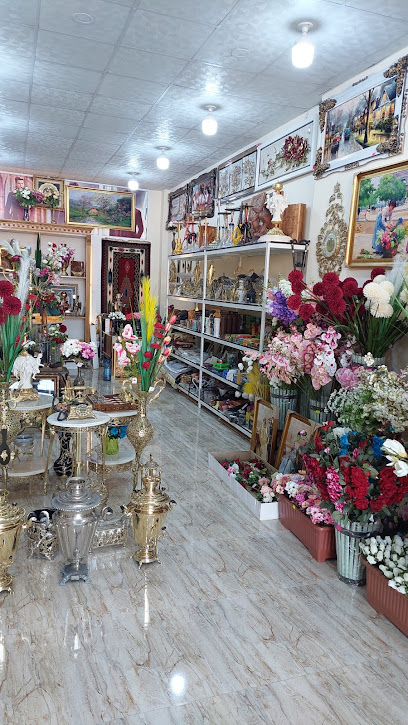
Baku Electronics (Gəncə şəhəri / Nizami küç.)
Explore Baku Electronics in Ganja for the latest gadgets and top-notch customer service in a modern shopping setting.
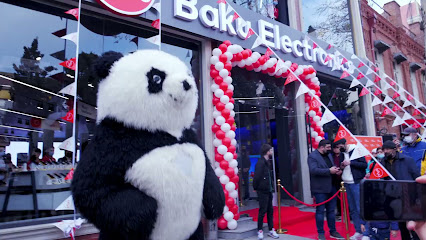
D'S Damat
Explore contemporary and vintage men's fashion at D'S Damat in Ganja, where quality meets style in a vibrant shopping atmosphere.
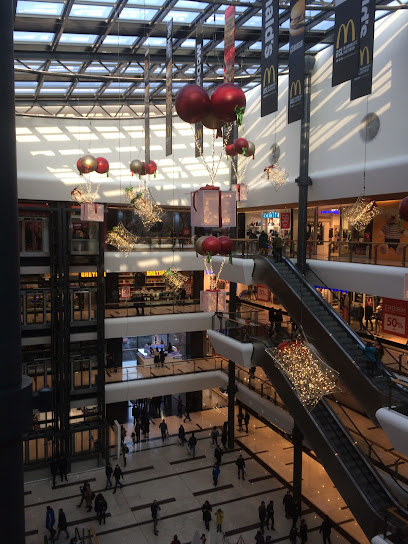
EsSa cosmetics Ganja
Explore EsSa Cosmetics in Ganja for a unique beauty shopping experience with personalized service and a wide range of quality products.
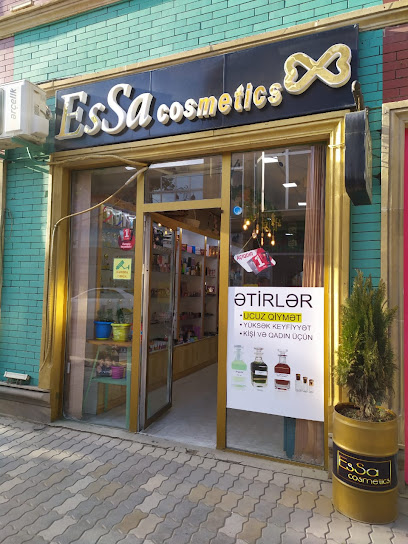
SUKONNU COREK ZAVODU
Discover authentic Azerbaijani flavors at Sukonnu Corek Zavodu, a charming grocery store in Ganja offering fresh produce and local delicacies.
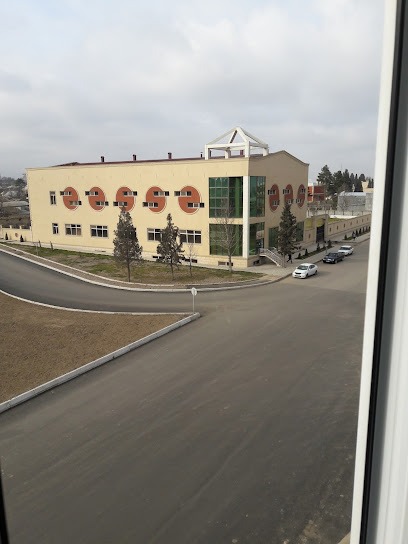
Narin geyim mağazası
Explore Ganja's vibrant fashion at Narin Boutique, where local culture meets contemporary style in a unique shopping experience.
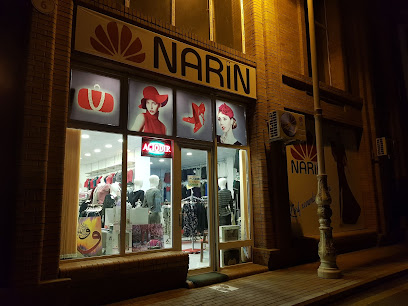
VOSSEN TUNING GANJA
Explore top-quality electronics at Vossen Tuning Ganja, your go-to destination for tech products and accessories in Azerbaijan.

Tufər market
Explore Tufər Market in Ganja for fresh produce, local delicacies, and an authentic glimpse into Azerbaijani culture.
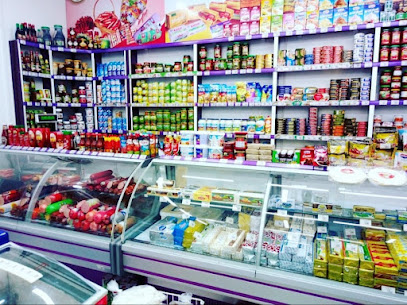
Megahand Gence
Explore the stylish trends at Megahand Gence, Ganja's premier clothing store, offering a unique shopping experience for every fashion lover.
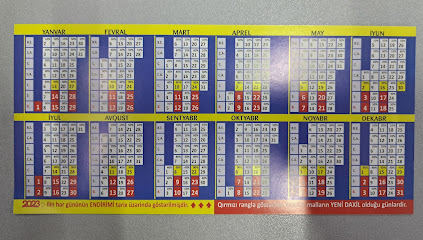
Happy Home - Mətbəx Əşyaları Mağazası
Explore the finest kitchenware and culinary tools at Happy Home - Mətbəx Əşyaları Mağazası, Ganja's premier destination for cooking enthusiasts.
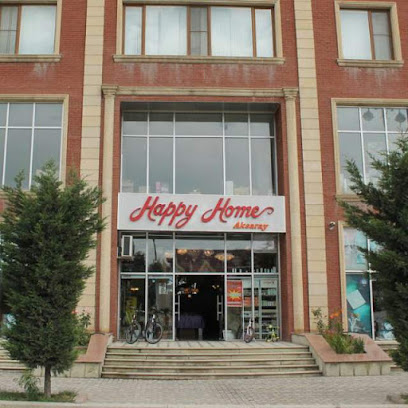
alegria Ganja
Discover the elegance of wedding attire at Alegria Ganja, where love stories begin and unforgettable memories are made.
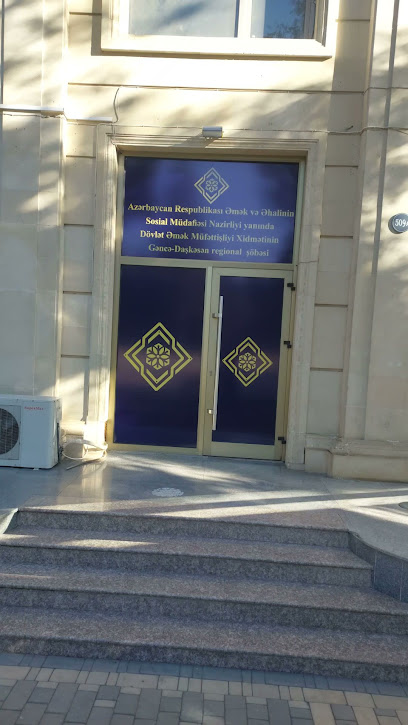
Böyük Ucuzluq
Explore Böyük Ucuzluq in Ganja for stylish clothing at unbeatable prices, making your shopping experience both enjoyable and budget-friendly.

Essential bars & hidden hideouts
Furor Restaurant and Pub
Discover the flavors of Ganja at Furor Restaurant and Pub, where culinary delights meet a vibrant atmosphere for an unforgettable dining experience.
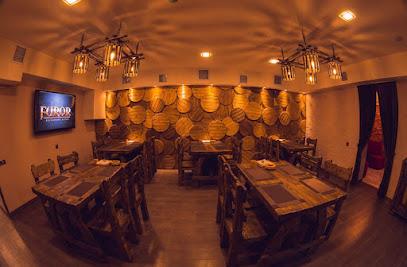
Beer House
Discover the lively ambiance of Beer House, a must-visit pub in Ganja offering local brews, traditional snacks, and an authentic Azerbaijani experience.
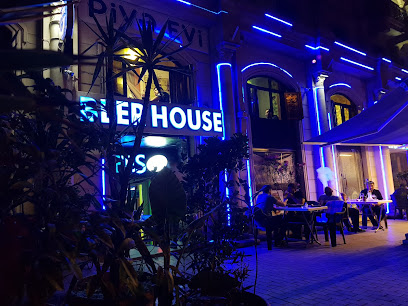
Bizz Time cafe
Experience the vibrant atmosphere of Bizz Time Cafe in Ganja, where delicious food meets the art of hookah and lively entertainment awaits.
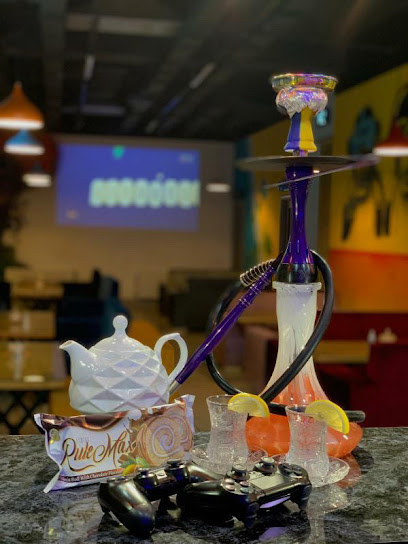
SS lounge
Experience the stylish ambiance of SS Lounge in Ganja, where modern comforts meet delightful refreshments in a vibrant setting.

Park Karaoke
Experience the ultimate karaoke fun in Ganja at Park Karaoke, where every night is a celebration of music, laughter, and unforgettable memories.
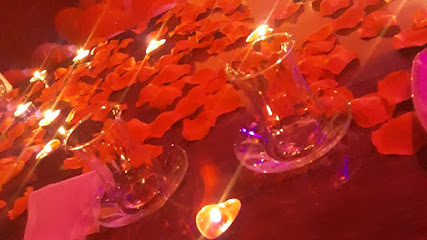
Alibaba Nargile Lounge
Discover the rich flavors and vibrant atmosphere of Alibaba Nargile Lounge in Ganja, where relaxation meets traditional Azerbaijani culture.
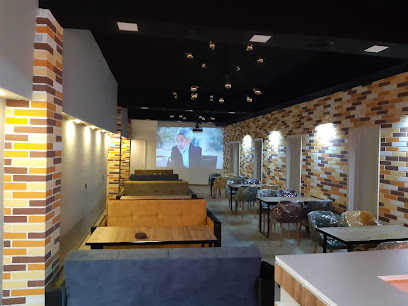
Ganja
Explore Ganja, a vibrant Azerbaijani city with rich history, stunning architecture, and delicious cuisine in a lively atmosphere.
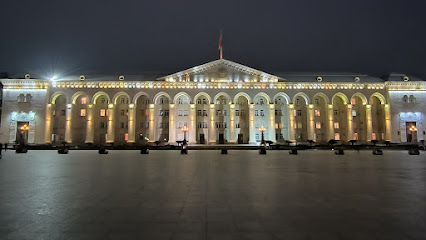
Fayton
Discover the vibrant nightlife at Fayton, a bar in Ganja where local flavors meet modern ambiance, perfect for an unforgettable evening.
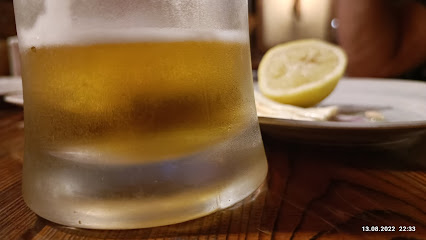
13 Köşk
Discover the lively ambiance of 13 Köşk, Ganja's premier bar for a taste of local culture and nightlife.
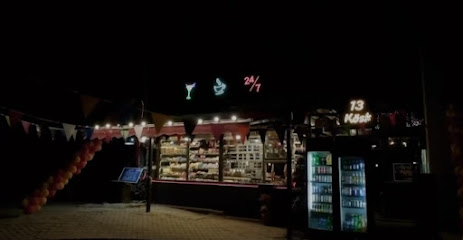
Rəşadın dörd gözü
Discover Ganja's hidden bar gem, Rəşadın dörd gözü, where local charm meets refreshing drinks in a cozy atmosphere.

Hüseynin qruz yeri
Discover the vibrant bar scene at Hüseynin Qruz Yeri in Ganja, where local culture and refreshing drinks come together in a cozy atmosphere.

Sabish Pub
Discover the unique charm of Sabish Pub in Ganja, Azerbaijan, a perfect spot to unwind and savor local drinks in a friendly atmosphere.

Era pub
Discover the vibrant Era Pub in Ganja, where lively ambiance meets local culture and a wide selection of drinks.
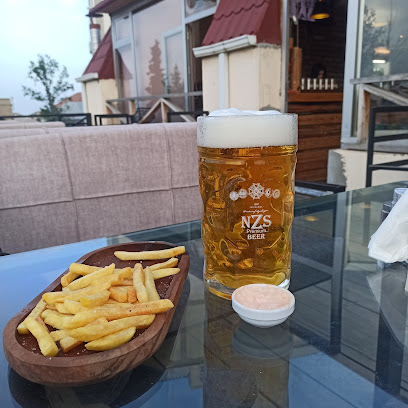
Central.Shisha
Experience Ganja's vibrant nightlife at Central.Shisha, where traditional shisha meets a welcoming atmosphere and delightful drinks.

Local Phrases
-
- HelloSalam
[sah-lahm] - GoodbyeBaş çar
[bahsh char] - YesBəli
[beh-lee] - NoXeyir
[khay-eer] - Please/You're welcomeXahiş edirəm
[khah-heesh eh-dee-rem] - Thank youTəşəkkür edirəm
[tuh-shek-koor eh-dee-rem] - Excuse me/SorryBağışlayın
[bah-ghish-lah-yin] - How are you?Necəsən?
[neh-jeh-sen] - Fine. And you?Yaxşıyam. Sən?
[yahkh-shee-yam. sen] - Do you speak English?İngiliscə danışırsınız?
[een-gee-lees-jeh dah-nee-sir-sin-uz] - I don't understandAnlamıram
[ahn-lahm-uh-rahm]
- HelloSalam
-
- I'd like to see the menu, pleaseXahiş edirəm menyunu görmək istəyirəm
[khah-heesh eh-dee-rem mehn-yuh-noo guhr-mehk ees-teh-yee-rem] - I don't eat meatMən ət yemirəm
[muhn aht yeh-mee-rem] - Cheers!Sağ ol
[sah ohl] - I would like to pay, pleaseXahiş edirəm ödəmək istəyirəm
[khah-heesh eh-dee-rem uh-deh-mehk ees-teh-yee-rem]
- I'd like to see the menu, pleaseXahiş edirəm menyunu görmək istəyirəm
-
- Help!Kömək!
[kuh-muhk] - Go away!Uza!
[oo-zah] - Call the Police!Polisi çağırın!
[pohl-ee-see chah-ghuh-ruhn] - Call a doctor!Həkim çağırın!
[heh-keem chah-ghuh-ruhn] - I'm lostYolumu itirmişəm
[yohl-oo-moo ee-teer-mee-shehm] - I'm illMən xəstəyəm
[muhn khuh-steh-yehm]
- Help!Kömək!
-
- I'd like to buy...Almaq istəyirəm...
[ahl-mahk ees-teh-yee-rem] - I'm just lookingSadəcə baxıram
[sah-deh-jeh bah-khee-rahm] - How much is it?Neçəyədir?
[neh-jeh-yeh-deer] - That's too expensiveÇox bahadır
[choh bah-hah-duhr] - Can you lower the price?Qiyməti azalda bilərsiniz?
[keem-eh-tee ah-zahl-dah bee-lehr-see-neez]
- I'd like to buy...Almaq istəyirəm...
-
- What time is it?Saat necədir?
[saht neh-jeh-deer] - It's one o'clockSaat birdir
[saht beer-deer] - Half past (10)Onun yarısı
[oh-noon yah-ruh-suh] - MorningSəhər
[seh-her] - AfternoonGünorta
[goon-or-tah] - EveningAxşam
[ahk-shahm] - YesterdayDünən
[doo-nehn] - TodayBu gün
[boo goon] - TomorrowSabah
[sah-bah] - 1Bir
[beer] - 2İki
[ee-kee] - 3Üç
[ooch] - 4Dörd
[dohrd] - 5Beş
[besh] - 6Altı
[ahl-tuh] - 7Yeddi
[yehd-dee] - 8Səkkiz
[sehk-keez] - 9Doqquz
[doh-ghooz] - 10On
[ohn]
- What time is it?Saat necədir?
-
- Where's a/the...?...haradadır?
[hah-rah-dah-deer] - What's the address?Ünvan nədir?
[oon-vahn neh-deer] - Can you show me (on the map)?(Xəritədə) göstərə bilərsən?
[(khuh-ree-teh-deh) gohs-teh-ruh bee-lehr-sen] - When's the next (bus)?Növbəti (avtobus) neçədədir?
[nehv-buh-tee (ahv-toh-boos) neh-jeh-deer] - A ticket (to ....)Bir biletlə (.... -ə)
[beer bee-leht-leh (.... -uh)]
- Where's a/the...?...haradadır?
History of Ganja
-
Ganja's history dates back to ancient times, with archaeological findings indicating human settlement in the area as early as the 5th century BC. The city was originally known as Ganja-Kapoy and was a prominent center in the Caucasus region during the era of the Caucasian Albania kingdom.
-
In the 7th century, Ganja was conquered by the Arab Caliphate. The city became an important administrative and cultural center under the rule of the Abbasid Caliphate. This period saw the introduction of Islam to the region, which significantly influenced Ganja's cultural and architectural development.
-
Ganja is renowned as the birthplace of the famous Persian poet Nizami Ganjavi, born in 1141. Nizami is celebrated for his epic poems, including the 'Khamsa' (Quintet), which have left a lasting impact on Persian literature and culture. His mausoleum, located in Ganja, is a major cultural and historical landmark.
-
During the 11th and 12th centuries, Ganja came under the influence of the Seljuk Empire and later the Atabegs of Azerbaijan. The city flourished as a center of trade, culture, and learning. Many architectural masterpieces, such as the Javad Khan Street and the Javad Khan House, date back to this period.
-
In the 13th century, Ganja suffered significant destruction due to the Mongol invasion led by Hulagu Khan. The city was rebuilt in the subsequent years but faced further hardships under the rule of various Mongol khanates.
-
In the 16th century, Ganja became part of the Safavid Empire, which established it as an important administrative center in the region. The Safavid period was marked by the construction of several significant structures, including the Shah Abbas Mosque, which remains a key historical site in Ganja.
-
In the early 19th century, Ganja was annexed by the Russian Empire following the Treaty of Gulistan in 1813. The city was renamed Elisabethpol and became a provincial center. This period saw significant growth and modernization, with the development of infrastructure and new public buildings.
-
After the Russian Revolution, Ganja became part of the Transcaucasian SFSR and later the Azerbaijan SSR within the Soviet Union. The city was renamed Kirovabad in 1935 in honor of Soviet leader Sergey Kirov. During the Soviet era, Ganja experienced industrial growth and urbanization, with many factories and residential areas being established.
-
Following the dissolution of the Soviet Union in 1991, Ganja reverted to its historical name. The city has since undergone significant development and restoration efforts. Today, Ganja is a vibrant cultural and economic center in Azerbaijan, known for its rich history, architectural heritage, and beautiful parks.
Ganja Essentials
-
Ganja is located in western Azerbaijan. The nearest international airport is Ganja International Airport, which has flights from major cities like Istanbul and Moscow. Alternatively, you can fly into Heydar Aliyev International Airport in Baku and take a train or bus to Ganja. The train journey from Baku to Ganja takes about 4-5 hours, offering a scenic ride through the Azerbaijani countryside. Buses are also available and are a budget-friendly option.
-
Ganja offers several transportation options. Taxis are readily available and relatively inexpensive. The city also has a network of buses and minibuses (marshrutkas) that connect different parts of the city. Renting a car is an option if you plan to explore the surrounding areas. For a more local experience, consider renting a bicycle to navigate through the city streets.
-
The official currency in Azerbaijan is the Azerbaijani Manat (AZN). Credit cards are widely accepted in hotels, restaurants, and larger shops, but it is advisable to carry some cash for smaller establishments and local markets. ATMs are plentiful in Ganja, and you can withdraw cash using international bank cards.
-
Ganja is generally a safe destination for tourists. However, like any other city, it is important to take standard safety precautions. Avoid walking alone at night in unfamiliar areas and keep an eye on your belongings in crowded places. There are no specific high-crime areas targeting tourists, but staying vigilant and aware of your surroundings is always best practice.
-
In case of emergency, dial 112 for immediate assistance. Ganja has local police stations and medical facilities available for emergencies. It is recommended to have travel insurance that covers medical emergencies. Pharmacies are available throughout the city for minor health issues, and many pharmacists speak some English.
-
Fashion: Do dress modestly, especially when visiting religious sites. Avoid wearing revealing clothing. Religion: Do respect local customs and traditions. Always cover your head when entering mosques. Public Transport: Do be respectful and give up your seat to elderly passengers. Don't eat or drink on public transport. Greetings: Do greet people with a handshake. A slight bow of the head is also a sign of respect. Eating & Drinking: Do try local delicacies and accept food offerings graciously. Don't refuse hospitality, as it is considered impolite.
-
To experience Ganja like a local, visit the local markets where you can buy fresh produce and traditional Azerbaijani goods. Engage with locals, as they are often friendly and willing to share stories about the city's history and culture. Don’t miss visiting the Nizami Museum and the Ganja Fortress for a deep dive into the region's rich history. For a unique experience, take a stroll through the Javad Khan Street, known for its charming cafes and local shops.
Trending Landmark in Ganja
-
Xan Bağı
-
Heydər Əliyev Parkı
-
Nizami Ganjavi Mausoleum
-
Ganja International Airport
-
Bottle House
-
Ganja Castle Doors - Museum of Archaeology and Ethnography
-
İmamzadeh İbrahim
-
Gəncə Qalası
-
Flag Square
-
Azerbaijan State Agrarian University (Main Corpus/ Bash Bina)
-
Javad Khan Mausoleum
-
Ganja State History and Ethnography Museum
-
Chokak Hamam
-
Nizami Ganjavi Museum
Nearby Cities to Ganja
-
Things To Do in Mingachevir
-
Things To Do in Yevlakh
-
Things To Do in Sheki
-
Things To Do in Shaki
-
Things To Do in Sighnaghi
-
Things To Do in Signagi
-
Things To Do in Jermuk
-
Things To Do in Dilijan
-
Things To Do in Gabala
-
Things To Do in Goris
-
Things To Do in Vayk
-
Things To Do in Tsaghkadzor
-
Things To Do in Haghpat
-
Things To Do in Alaverdi
-
Things To Do in Telavi










